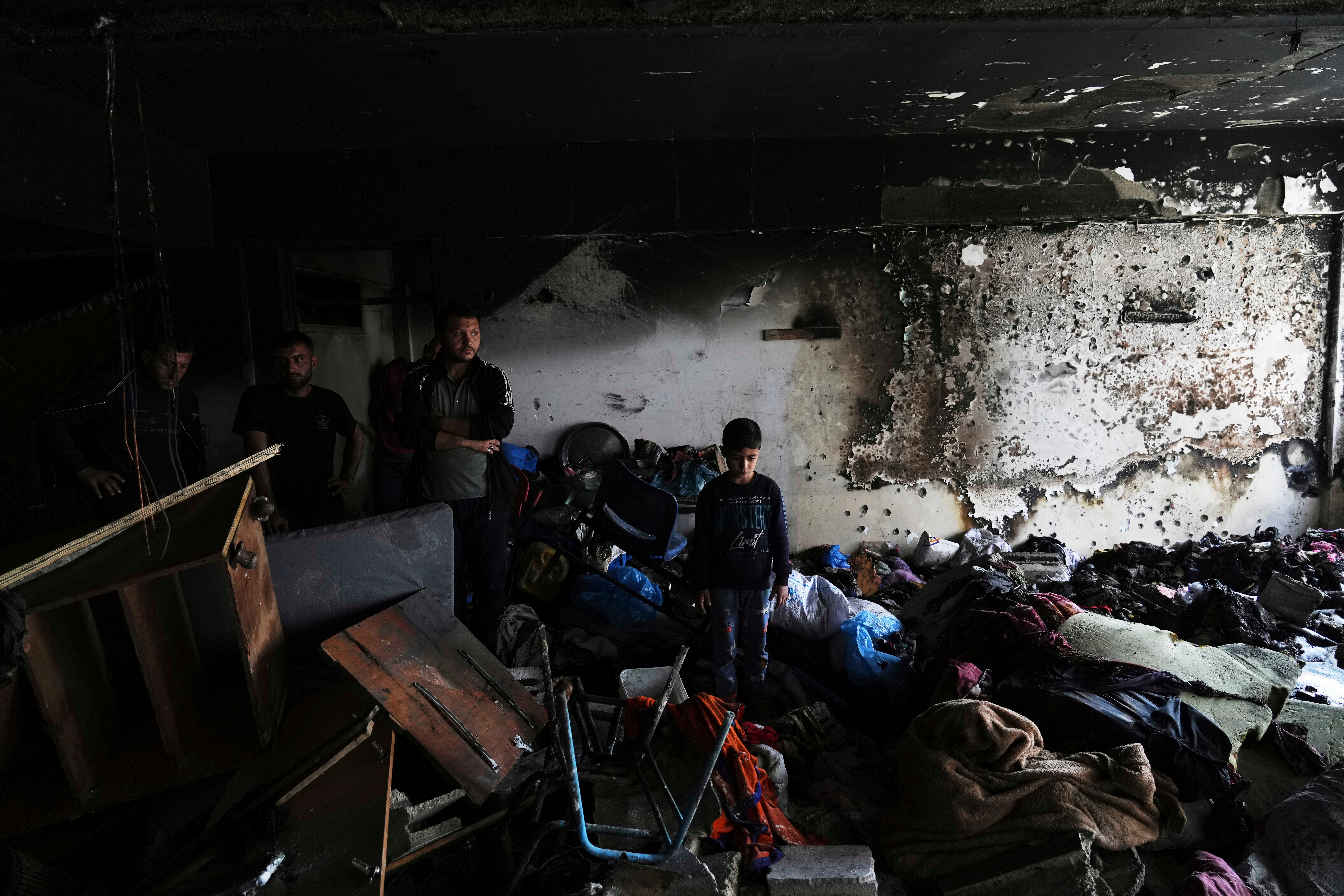
Israeli airstrikes killed at least 100 Palestinians across the Gaza Strip on Thursday, including 27 or more sheltering at a school in the north, according to Palestinian medical authorities.
The bodies of 14 children and five women were recovered from the school in the Tuffah neighborhood of Gaza City, and the death toll could still rise because some of the 70 wounded had critical injuries, said Health Ministry spokesman Zaher al-Wahidi.
More than 30 other Gaza residents were killed in strikes on homes in the nearby neighborhood of Shijaiyah, he said, citing records at Ahli Hospital.

The Israeli military said it struck a "Hamas command and control center" in the Gaza City area, and said it took steps to lessen harm to civilians. Israel gave the same reason — striking Hamas militants in a "command and control center" — for attacking a United Nations building used as a shelter a day earlier, killing at least 17 people.Hamas condemned the strike on the school, calling it a " heinous massacre" of innocent civilians.
The Israeli military on Thursday ordered more residents in parts of northern Gaza to move west and south to shelters, warning that it planned to "work with extreme force in your area."
A number of the Palestinians leaving the targeted areas did so on foot, with some carrying their belongings on their backs and others using donkey carts."My wife and I have been walking for three hours covering only one kilometer," said Mohammad Ermana, 72.
The couple, clasping hands, each walked with a cane. "I'm searching for shelters every hour now, not every day," he said.Israel has issued sweeping evacuation orders for parts of northern Gaza ahead of expected ground operations.
The United Nations humanitarian office said around 280,000 Palestinians have been displaced since Israel ended the ceasefire with Hamas last month.
The fresh evacuation orders came a day after senior government officials said Israel said it would seize large parts of the Palestinian territory and establish a new security corridor across it.
To pressure Hamas, Israel has imposed a month-long blockade on food, fuel and humanitarian aid that has left civilians facing acute shortages as supplies dwindle — a tactic that rights groups say is a war crime.
Hamas says it will only release the remaining 59 hostages — 24 of whom are believed to be alive — in exchange for the release of more Palestinian prisoners, a lasting ceasefire and an Israeli pullout from Gaza.
The group has rejected demands that it lay down its arms or leave the territory.







